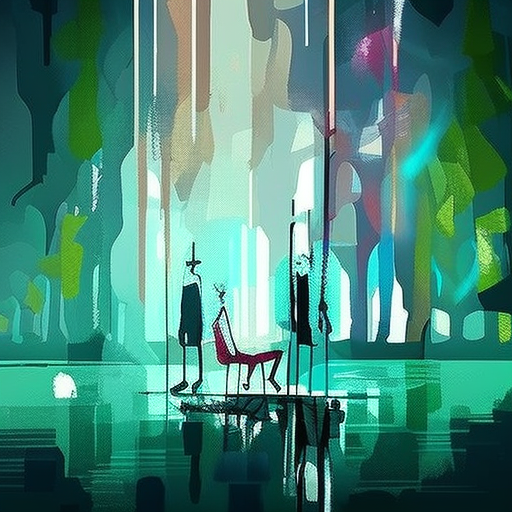One-line Summary:
Dubliners is a collection of fifteen short stories that vividly depict the lives of ordinary people in Dublin, capturing the essence of the city and exploring themes of paralysis, isolation, and the search for escape.
Paralysis and Stagnation in Dublin
Dubliners portrays the stagnation and paralysis that permeate the lives of its characters, reflecting the social, political, and cultural climate of early 20th-century Dublin. Each story presents characters who are trapped in their circumstances, unable to break free from the monotony and limitations of their lives. From the young boy in “The Sisters” who is confronted with death, to the disillusioned protagonist in “A Painful Case,” Joyce highlights the pervasive sense of paralysis that hinders personal growth and fulfillment.
In “Eveline,” the protagonist is torn between her desire for escape and her sense of duty towards her family, ultimately choosing to remain in Dublin. Similarly, in “The Dead,” Gabriel Conroy realizes the emptiness of his own existence and the futility of his aspirations, symbolizing the broader theme of paralysis that extends beyond individual lives.
Isolation and Loneliness
Another recurring theme in Dubliners is the profound sense of isolation experienced by many of the characters. Joyce portrays Dublin as a city where individuals are disconnected from one another, leading to a deep sense of loneliness and alienation. In “Araby,” the young boy is infatuated with his neighbor, but his attempts to connect with her are met with indifference, highlighting the theme of unrequited love and isolation.
In “Two Gallants,” Lenehan and Corley, two friends, exploit and manipulate others for their own gain, emphasizing the lack of genuine human connection in their lives. The characters in Dubliners are often trapped in their own thoughts and unable to form meaningful relationships, reflecting the isolation prevalent in society.
The Search for Escape
Throughout Dubliners, characters yearn for escape from their mundane lives and the constraints of Dublin. Whether it is through dreams, fantasies, or actual physical departure, the desire for liberation is a driving force in many of the stories. In “An Encounter,” the boys fantasize about adventure and escape from the confines of school, while in “A Little Cloud,” Little Chandler dreams of becoming a successful writer and leaving Dublin behind.
However, these attempts at escape are often thwarted or remain unfulfilled, reinforcing the theme of paralysis. The characters’ aspirations are frequently crushed by societal expectations, personal limitations, or their own fears, leaving them trapped in their current circumstances.
Key Takeaways:
- Dubliners explores themes of paralysis, isolation, and the search for escape in early 20th-century Dublin.
- The collection vividly depicts the lives of ordinary people, highlighting the stagnation and paralysis that hinder personal growth and fulfillment.
- Characters in Dubliners experience a profound sense of isolation and loneliness, reflecting the lack of genuine human connection in their lives.
- The desire for escape is a recurring motif, but characters are often unable to break free from their circumstances, emphasizing the theme of paralysis.
Memorable Quote:
“He lived at a little distance from his body, regarding his own acts with doubtful side-glances. He had an odd autobiographical habit which led him to compose in his mind from time to time a short sentence about himself containing a subject in the third person and a predicate in the past tense.”
– from “A Painful Case”
Dubliners is a poignant collection of stories that delves into the lives of Dublin’s inhabitants, capturing the essence of the city and its people. Through themes of paralysis, isolation, and the search for escape, James Joyce paints a vivid portrait of a society trapped in stagnation. The characters’ yearning for liberation and connection resonates with readers, highlighting the universal desire for personal fulfillment and meaningful relationships. Dubliners serves as a powerful exploration of the human condition, reminding us of the importance of breaking free from the constraints that hold us back.












